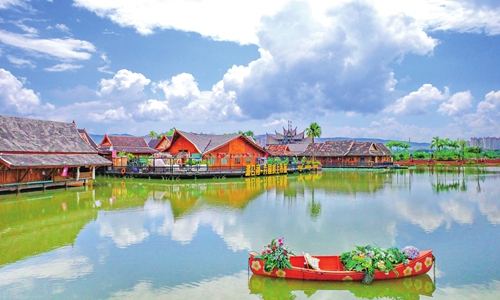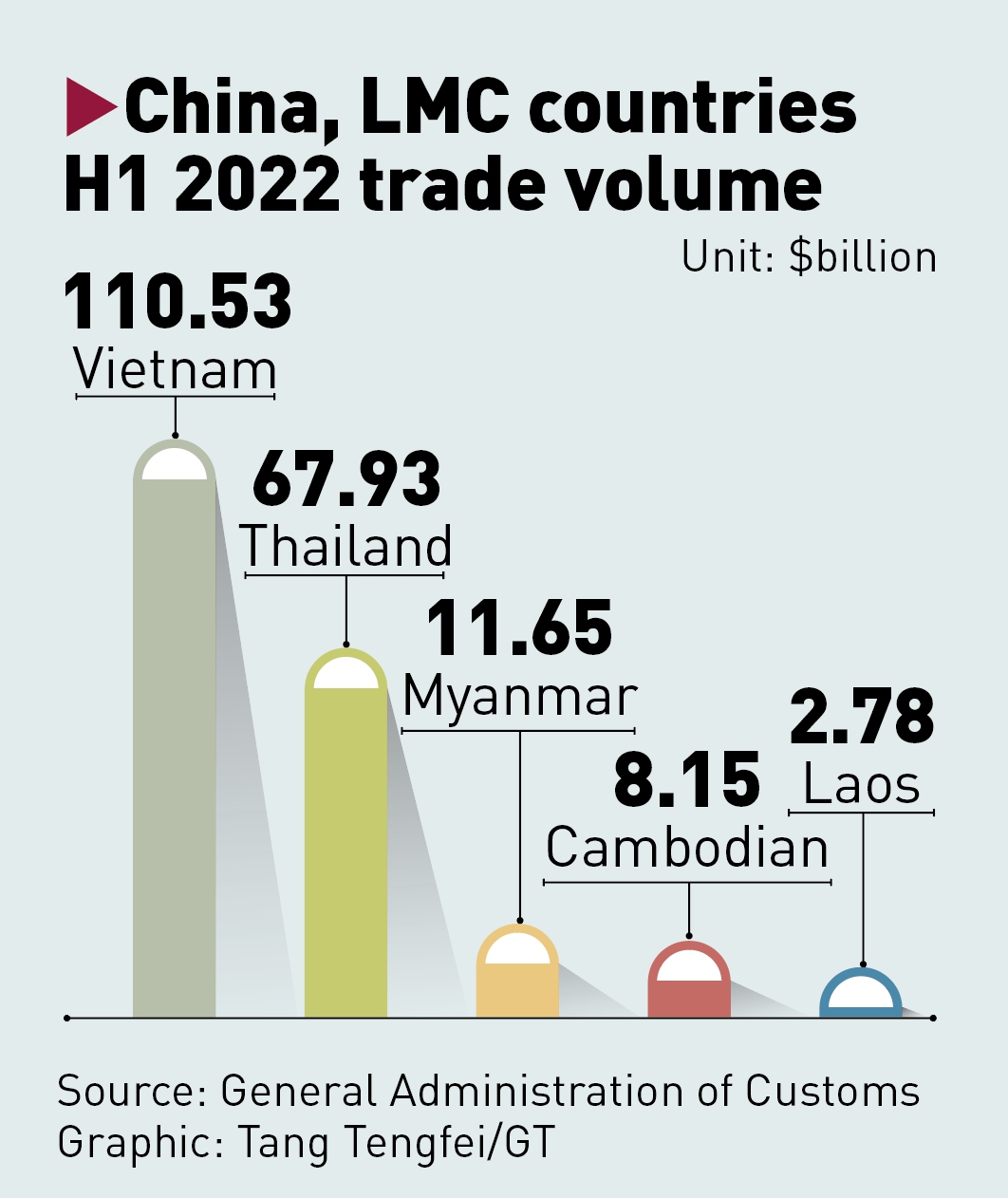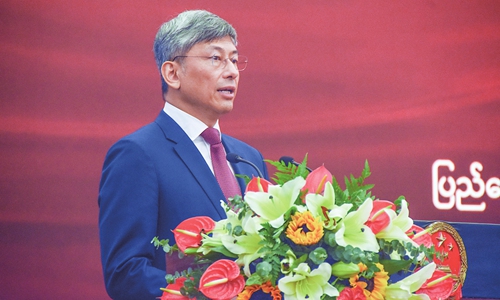Editor’s Note:
On July 4, the seventh Lancang-Mekong Cooperation (LMC) Foreign Ministers’ Meeting was held in Bagan, Myanmar, Chinese State Councilor and Foreign Minister Wang Yi and Myanmar’s Foreign Minister U WunnaMaungLwin co-chaired the meeting. At the meeting, Wang said, the LMC, as the first new sub-regional cooperation mechanism with the participation of the six countries in a basin, has developed rapidly and achieved remarkable results since its launch six years ago, setting a example of regional cooperation.
In a recent exclusive interview with the Global Times’ reporter Li Xuanmin (GT), Chinese Ambassador to Myanmar Chen Hai (Chen) also highlighted the successful implementation of LMC mechanism in contributing to regional peace, stability and prosperity. He stressed that the mechanism is based on mutual political trust, emphasized on voluntary participation without any political conditions attached.
With regard to the situation in Myanmar, Chen said political negotiation and reconciliation needs to be advanced, while more efforts are still needed for its democratic transition and national transformation. And China will continue to work with ASEAN to play a role in stabilizing and improving the situation in Myanmar.

The Mekong River Six States Floating Market at Xishuangbanna Dai Autonomous Prefecture, Southwest China’s Yunnan Province Photo: VCG
GT: LMC has become a model of sub-regional cooperation under the China-proposed BRI. In your view, why would the mechanism become an example of implementing multilateral cooperation and what are the reasons behind this?
Chen: Since the launch of LMC mechanism, the six countries have adhered to the original aspiration of “shared river, shared future” and pursued the concept of “development first, treat each other as equals, pragmatism and efficiency, openness and inclusiveness.”
LMC is built on mutual political trust and Mekong countries always treat each other with sincerity. The six countries have always promoted the idea of “equal treatment, sincerity and mutual assistance, and closeness as one family,” fully taking care of each other and providing the maximum comforts in cooperation, without attaching any political conditions, and emphasizing voluntary participation.
China has established comprehensive strategic cooperative partnership with five Mekong countries. China and Myanmar, China and Laos, and China and Cambodia are building a community of shared future. And the six Lancang-Mekong countries are committed to building a Lancang-Mekong community with a shared future.
At the same time, LMC is inclusive, and it accommodates and supplements cooperation mechanism including China-ASEAN, Belt and Road Initiative and the Mekong River Commission to jointly promote regional peace, stability and prosperity.
GT: What is your view on the current situation in Myanmar, and what is China’s stance and position?
Chen: The situation in Myanmar is overall stable but in some areas, local conflicts persist, and political negotiation and reconciliation needs to be advanced, and efforts are still needed for democratic transition and national transformation. As a friendly neighbor, we hope that Myanmar maintains stability, achieves peace and pursues development.
China will continue to work with ASEAN to play a role in stabilizing and improving the situation in Myanmar.

Graphic: Tang Tengfei/GT
GT: The seventh LMC Foreign Ministers’ Meeting was held in Myanmar a few days ago, during which the Five-Year Plan of Action on the Lancang-Mekong Cooperation (2023-2027) was deliberated and endorsed. This year marks the opening of another “Golden Five Year” of the LMC, how do you evaluate the achievement of LMC in recent years, as well as the contributions of China and Myanmar in promoting regional cooperation?
Chen: The LMC is jointly initiated and promoted by the six countries including China and Myanmar. The LMC has made rapid progress and remarkable achievements for six years since its launch. It has successfully created a “golden example” for regional cooperation, contributed actively to promoting regional stability and prosperity, and brought tangible benefits for countries and people in the region.
China has provided support for LMC in terms of policies, funds, human resources. China has set up the special fund for LMC to support Mekong countries in carrying out economic, social and livelihood projects, and played an important role in the development of the region’s economic development and regional integration.
Also, Myanmar is the first place where LMC is initiated, and is also an active participant, promoter and beneficiary of LMC. Since the country took over the co-chair of the LMC in August 2020, Myanmar has actively coordinated, promoted and participated in LMC.
Amid the epidemic outbreak, LMC has effectively helped countries in their fights against epidemic. China has provided more than 200 million doses of vaccines to Mekong countries, sent medical expert teams, and aided the construction of nucleic acid testing laboratories and makeshift hospitals.
China also cooperated with Mekong countries to help enhance their testing capacity, drug research and development, and vaccine production, making full use of public health special fund of LMC. China also implemented traditional Chinese medicine (TCM) projects, and trained more than 1,300 TCM medical personnel and students for Mekong countries.
Source:- Global Times
Chinese Ambassador to Myanmar Chen Hai Photo: Courtesy of Chinese Embassy in Myanmar




